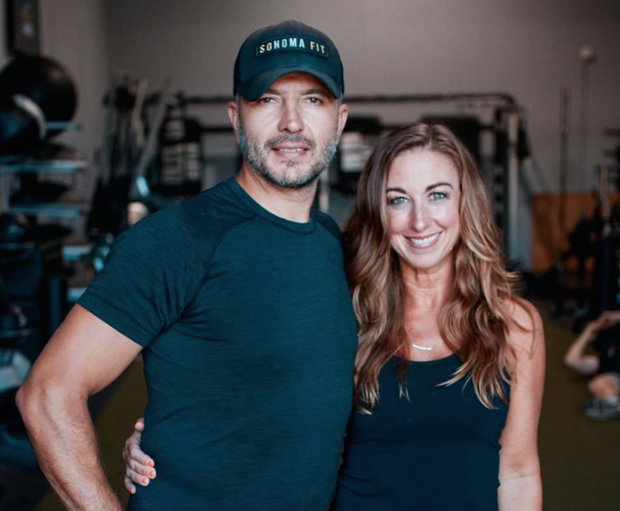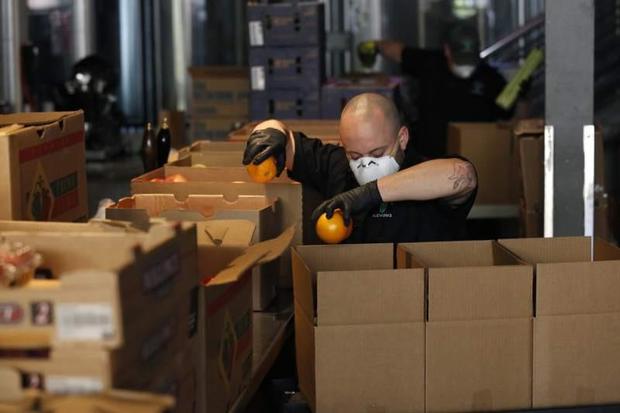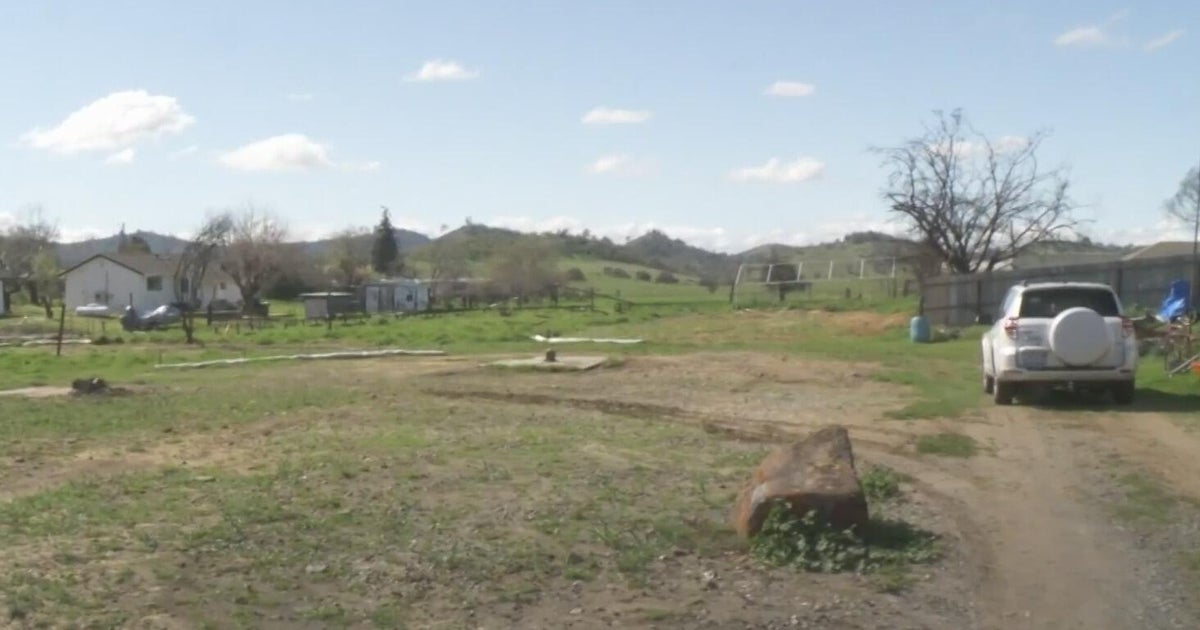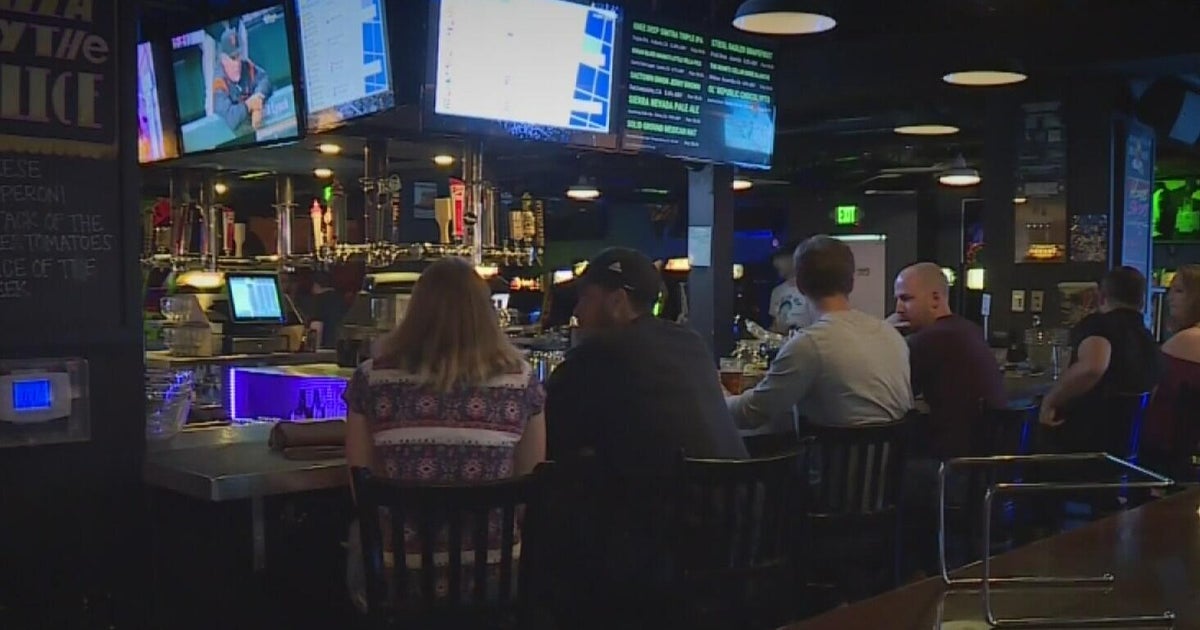Sonoma County: A bellwether for how businesses will rebound from coronavirus
As companies across the U.S. reopen despite the lurking coronavirus, California's Sonoma County may represent the new normal. The winery-rich region was one of the first parts of the country to ease restrictions on business, and its stuttering restart now offers a glimpse of what the future may hold for countless communities struggling to revive their economies while fending off a second wave of the deadly disease.
Sonoma officials declared an emergency in early March, and residents began sheltering-in-place along with other Californians far earlier than residents of other states. The tourist, entertainment and retail spending on which local employers depend vaporized practically overnight. The jobless rate promptly soared, more than quadrupling to 15.2% in April from the previous month. Small businesses and their workers especially suffered.
"Sometimes people cast business off as this vague corporate entity. But in a town like Sonoma, it's a lot of unique, independent businesses that make up what we call home here, and we want to keep them all afloat," said Mark Bodenhamer, CEO of the Sonoma Valley Chamber of Commerce.
To that end, Sonoma gradually started lifting shutdown orders in early May. By early June, local wineries, restaurants and retailers were finally allowed to begin serving customers with restrictions in place. The county is poised to reopen more fully on Saturday, when wine-tasting rooms and breweries will be allowed to serve customer indoors.
Yet while that is bound to benefit the local economy, many are concerned that a wider reopening could lead to more hospitalizations and deaths due to COVID-19 — as appears to be happening in more than 20 states. And given the uncertainty around which local businesses will survive, the area that welcomed more than 10 million tourists last year could end up looking much different than it did before the coronavirus took hold.
Gift cards won't cut it
Sonoma County, which first emerged as a winemaking region in the mid-1800s, is also home to large employers such as health care company Kaiser Permanente in Santa Rosa, which employs more than 3,000 people, and medical device maker Medtronic, with 1,000 workers. These larger businesses and their white-collar workforces help buttress the independent mom-and-pop shops that make up the fabric of the community.
Up to 50% of the county's nearly 15,000 small business are questioning their prospects for ever reopening barring a creative solution to remaining viable or some kind of miracle, according to the Santa Rosa Metro Chamber of Commerce. The community is tight-knit, and residents turned out for one another by buying gift cards to be used at later dates, for example. But goodwill alone can't save thousands of businesses.
"Our community did an awesome job rallying around them, buying gift certificates to be used at a future date and doing restaurant pickups and things like that, but the reality is it takes more than the to-go business and the goodwill of the community to give these businesses a chance to generate some income," Bodenhamer said.
"So much of our work can't be done remotely," he explained. "We are very hospitality-oriented and everything centers around tourism and the wine industry and our restaurants."
A "cataclysmic shift" in business
Many of the county's businesses fall squarely into the hospitality industry — a sector that's been hit hard by the pandemic as travel slowed to a crawl and large gatherings were banned. Sonoma County wineries, breweries, hotels and other businesses closed in March, when California Governor Gavin Newsom's stay-at-home order went into effect.
The state's early action is credited with keeping a lid on coronavirus cases, positioning Sonoma and other nearby counties to begin reopening relatively early. Notably, positive cases ticked upward as the county, with a population of nearly 500,000, allowed more business activities to resume. Case numbers have since leveled off, and on Saturday a new health order permitted restaurants to begin serving customers indoors. Residents can also visit barbershops and hair salons, and up to 100 people can attend religious services.
Still, the new health order states that the easing of restrictions "should not be seen as a return to normal," noting that "There is still a clear and present danger to the community by its continued transmission." As of June 12, Sonoma had 701 total COVID-19 cases, or less than 0.2% of the population, while four people have died.
Winners and losers
For weeks, restaurants, wineries and brewpubs have been open with restrictions in place that include a limit on patrons and an emphasis on outdoor entertaining.
"Instead of having 40 people in a tasting room, you have 10 parties of four having unique experiences outside, spaced apart and in touch with the grapes themselves," said Chris Denny, a local business leader and owner of The Engine is Red, a creative agency. "We are seeing a cataclysmic shift and my guess is people will love some of the elements, and they will stay forever."
For other types of business, of course, social distancing is more of an issue. Hairdressers, for example, will see far fewer clients and will have to spend more time sanitizing stations in between appointments when they start inviting customers back to the salon.
"What I am hearing from them is even though they'll be able to reopen, they won't see the same number of customers, and they will be in a financial crunch for a long time," said Letitia Hanke, CEO of a construction company and spokesperson for the North Bay Black Chamber of Commerce. "I expect we will see another wave of businesses saying, 'Hey, wait a second, we are going to have to go out of business because even though we opened back up, we can't make up for the loss in revenue."
Many restaurants, for example, are also likely to struggle given their razor-thin profit margins. Peter Rumble, CEO of the Santa Rosa Metro Chamber, expects most local restaurants to shut their doors for good.
"We'll be lucky if we have only 40% of our restaurants go out of business," he told CBS MoneyWatch. "I am afraid the number is going to be far worse for our restaurants because they are the types of businesses that no matter what we do, I don't think will make it."
Essential vs. non-essential
The fate of business such as local gyms and bookstores is also uncertain, a fact Rumble attributes to the designation of businesses as either essential or non-essential — a move he believes was misguided.
"There is no difference between walking through the aisle of a bookstore and walking through the aisle of a grocery store, and yet grocery stores are open while our bookstores are on the brink of closing, never to reopen again," Rumble said.
Andy Weinberger, who owns Reader's Books, a nearly 30-year old Sonoma bookstore, laments that his wasn't considered an essential business.
"We thought we were essential from the get-go because we are a bookstore and people need information and are hungry for words with schools being closed and libraries shuttered," he said. "But the county thought otherwise."
He's been offering curbside pickup on the bookstore's patio, but the pandemic "has seriously cut into our business," Weinberger said.
The shop was more than ready to open on Saturday. But it will still be a struggle to stay in business. "I don't think we are going to be crowded in any way because people are reluctant to shop in large numbers anyway," he said.
Book events, which account for much of the business's revenue, have been cancelled for the rest of the year. Still, he considers himself a fixture in the community and expects to persevere.
"We are committed to reopening and going forward, and my view is that eventually they will find a vaccine and we will get back to something that looks like normal, or we will learn to live with it and have herd immunity."
Some businesses are finding other ways to survive. Creative Sonoma, a non-profit supporting the local arts community, has secured funding to commission artists to help restaurants and other businesses extend their dining rooms and retail stores onto the streets and into public parking spaces.
"Because of COVID, they won't have enough indoor space, so we are doing what we can to help them," said Kristen Madsen, director of the group. "They won't be able to make their budgets work if they only have a fraction of their customers. That's the core driver of restaurants — they need to have more tables."
"We are 100% ready"
Gyms have been defined as non-essential, and Sonoma owners don't yet know when they will be able to reopen. But some people in the local fitness industry have already re-designed their facilities for the coronavirus era, to give themselves a fighting chance of staying alive.
Adam Kovacs, owner of Sonoma Fit, a chain of three fitness centers in the county, has been closed since early March and long since ran out of the loan money he received through the Small Business Administration's Paycheck Protection Program. The Paycheck loan helped his employees and landlord, but left nothing for the owners, whose profits have plummeted to zero.
"We were told to close the business because we are not essential. We got a little money to pay our staff, but our profits are gone and now we are dealing with the stigma of being non-essential. It's almost like they are saying your health is not essential," Kovacs said.
Still, he is eager to reopen, and plans to conduct fitness classes outdoors and close the gym for cleanings every 90 minutes.
"It's frustrating to know both that I am ready, and since health is the No. 1 shield to fight this virus, that I am the solution in a way," Kovacs said.
Helping customers stay safe
Other businesses owners are more hesitant about fully reopening. Third Street Aleworks, a Santa Rosa brewery that employed 64 people before the stay-at-home order was enforced, now has just two staffers. It started selling grocery boxes including meat and produce from local purveyors at cost to help residents avoid visiting overcrowded grocery stores.
The boxes also help the company sell beer, which customers typically purchase when they pick up their groceries.
"We saw an opportunity to help our local farmers and the community at the same time," said Matthew Vella, one of the brewery's owners.
The company has started to focus on selling its beer to grocery stores, rather than encouraging people to congregate onsite.
"As of last Friday we could have opened the patio... but with Memorial Day the weekend before, we weren't comfortable bringing employees back. We know a lot of people went out, and we thought cases might spike and we didn't want to put our employees' — or the community's — health at risk," Vella said.
Chris Frederick, his business partner, thinks the brewery's conservative approach to reopening will help protect its place in Sonoma County for years to come.
"We were doing what we could to help out the community around here and see what we could do to help people social distance, stay out of the grocery store and defeat COVID-19," Frederick said. "If we can help prevent one person from getting sick, I feel like we have done something good."
Rachel Layne contributed to this report.





